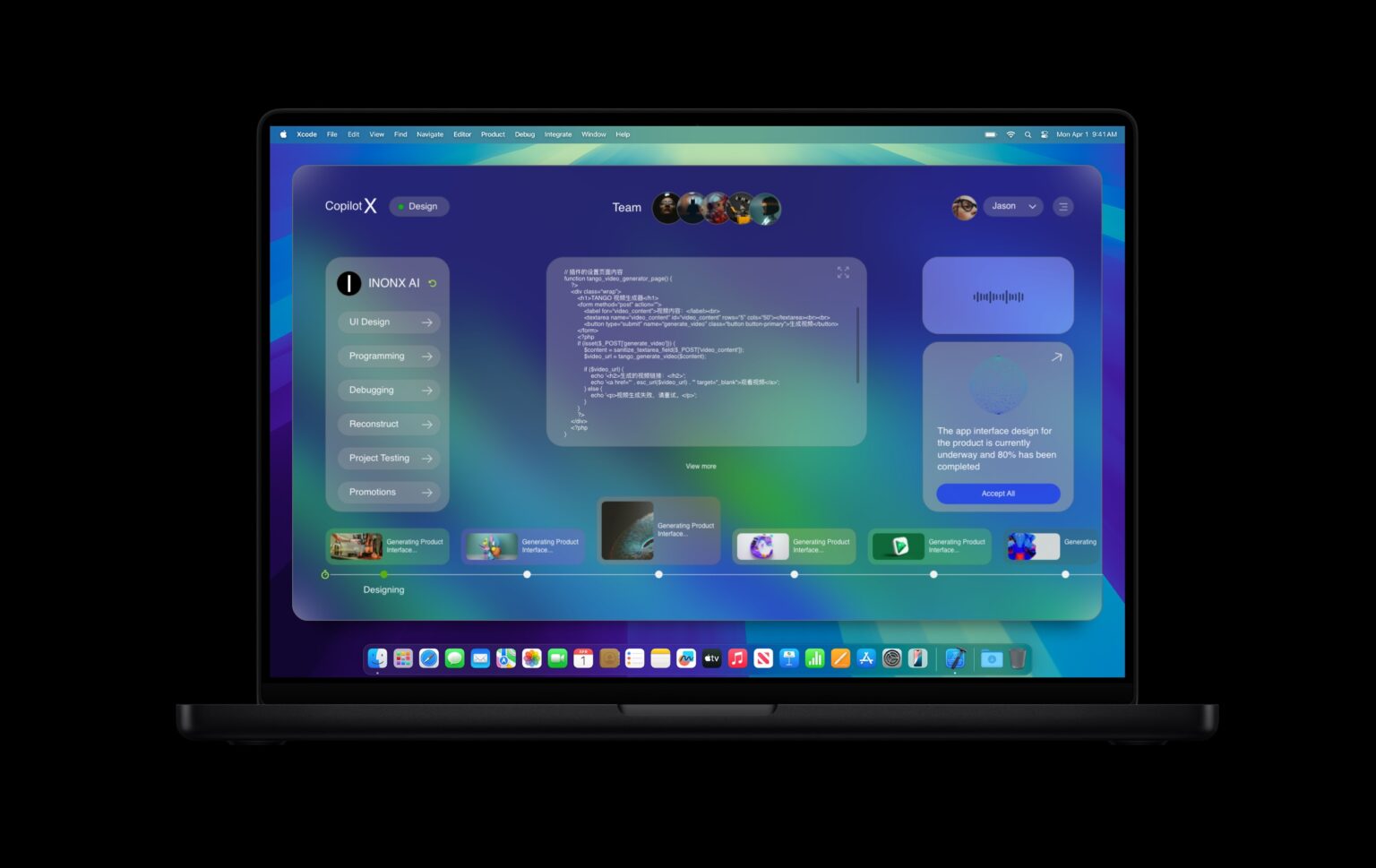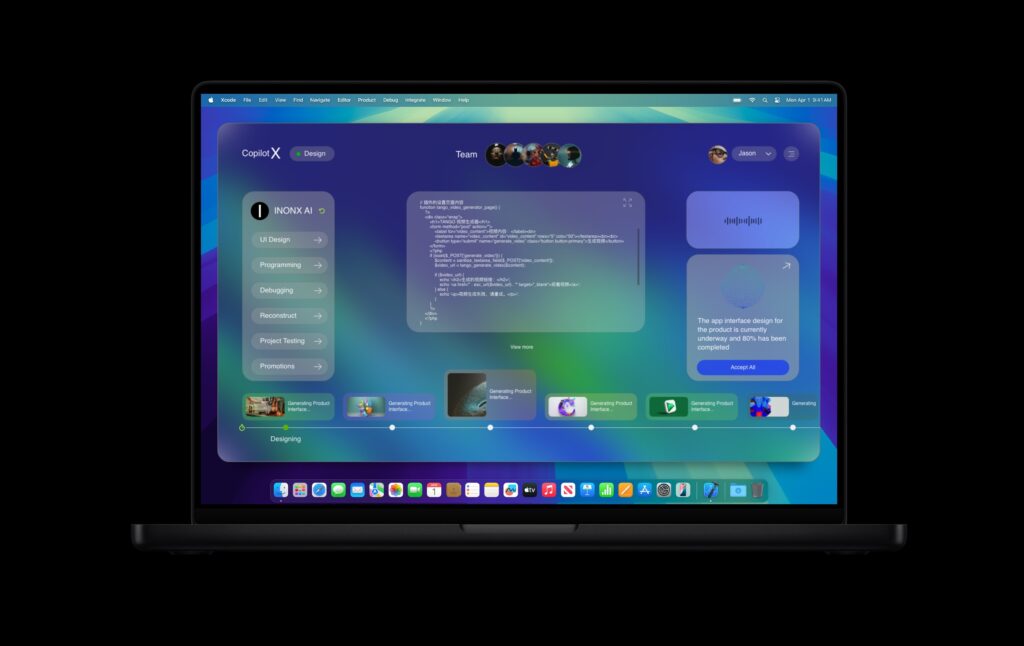The year 2024 has ushered in a wave of exciting advancements in artificial intelligence (AI), with new large models and tools transforming various industries and addressing unique challenges. A significant highlight is the launch of Google’s Gemini 1.5 Pro, a multimodal AI that enhances context understanding and opens new avenues for applications. In this article, we explore the most recent developments in AI, encompassing new models, specialized tools, and innovative products that are poised to reshape sectors such as healthcare, business automation, and education.
Across the AI landscape, Google Gemini 1.5 Pro stands out as a monumental leap forward. Released in early 2024, this large language model (LLM) offers improvements in both multimodal capabilities and context comprehension. As reported by Google’s AI blog, Gemini 1.5 Pro can process and generate content in various modalities—text, images, and even audio—making it especially useful for industries requiring comprehensive data interpretations like healthcare and e-commerce (Google AI, 2024). With an enhanced ability to understand context, Gemini 1.5 Pro is well-equipped for tasks ranging from complex decision-making simulations to conversational AI in customer service, allowing organizations to deploy AI solutions that are more responsive and contextually aware.
Furthermore, the introduction of APIs and tools that integrate advanced AI capabilities is transforming workflows across industries. For instance, Element AI, a startup focused on democratizing access to AI technologies, has recently unveiled a suite of tools designed for enterprise-level automation. This suite offers APIs that allow organizations to efficiently deploy AI solutions for data analysis and behavioral predictions, enhancing their operational capabilities (Element AI, 2024). One notable feature of these tools is their ability to seamlessly integrate into existing software suites, minimizing disruption and maximizing ROI.
In the realm of healthcare, the impact of advanced AI systems cannot be overstated. Recently, Omnicell launched an innovative AI-driven medication management system that not only automates pharmacy operations but also utilizes predictive analytics to optimize inventory and reduce waste. According to their press release, this system leverages AI algorithms that anticipate demand and automate restocking processes to ensure that healthcare providers have adequate supplies at all times (Omnicell, 2024). This level of precision is particularly important in managing critical medications, emphasizing AI’s role in enhancing patient care and operational efficiency.
As organizations increasingly rely on AI for more specialized tasks, the need for robust, reliable, and debiased LLMs has become evident. In response, several companies are focusing on refining their models to reduce bias and improve reliability. Leading this charge is OpenAI, which has announced an upgraded version of its DALL-E model specifically designed for fair representation in visual content generation. This updated model employs advanced training techniques to limit biases while ensuring higher fidelity in creative outputs (OpenAI, 2024). Such innovations address critical ethical concerns while broadening the scope of applications in creative industries.
Innovative AI products targeting the cybersecurity sector have also emerged, with solutions that leverage advanced machine learning algorithms to detect and respond to threats in real time. For instance, Darktrace has rolled out a new autonomous AI product capable of self-learning to identify anomalies and combat cybersecurity threats as they arise. This technology utilizes a unique approach known as the ‘Enterprise Immune System’, which mirrors the human immune response to provide a tailored defense against potential attacks (Darktrace, 2024). Such tools not only enhance security measures for organizations but also reduce the dependency on human oversight.
Given the increasing demand for AI solutions in the education sector, companies are developing platforms that utilize AI for personalized learning experiences. By analyzing individual student performance data, these platforms can offer customized learning paths that cater to diverse educational needs. One notable example is Squirrel AI, which has launched an AI tutor that constantly adapts its teaching strategies based on student interactions. As a result, educators can focus on providing support where it’s most needed, significantly enhancing learning outcomes (Squirrel AI, 2024).
AI’s role in knowledge management is an area of profound transformation, where emerging technologies are facilitating enhanced information accessibility and collaboration. Companies are beginning to employ AI-powered knowledge management systems that can automate categorizing, tagging, and retrieving information from vast repositories. These systems use natural language processing to understand context and provide users with relevant information without the need for extensive searching (Knowledge Management Journal, 2024). This innovation empowers businesses to harness the full potential of their intellectual assets and collaborate more effectively.
Beyond just enhancements in functional capabilities, these AI advancements are also driving costs down, democratizing access, and enabling smaller enterprises to leverage cutting-edge technologies. The emergence of low-code and no-code AI development platforms has further accelerated this trend, allowing non-technical stakeholders to create and implement AI applications tailored specifically to their needs (Forrester Research, 2024). As a result, more companies, regardless of size, are finding innovative ways to engage with AI technologies.
The convergence of these advancements suggests a future of AI that is not only technologically sophisticated but also ethically responsible and accessible. By addressing concerns such as bias in AI and emphasizing user-centric design, companies are beginning to lay the groundwork for a more equitable AI ecosystem. Moreover, as organizations become increasingly reliant on AI applications, the focus on responsible development practices is expected to strengthen, ensuring that technology serves not just a few, but all layers of society.
In conclusion, 2024 has marked a significant year for artificial intelligence, with groundbreaking models like Google’s Gemini 1.5 Pro leading the charge toward multimodal capabilities and advanced context understanding. Alongside the emergence of essential tools and APIs, specialized applications in industries such as healthcare and cybersecurity are setting new standards for operational effectiveness. As innovations in AI continue to evolve, the potential for transformative impacts on various sectors appears limitless. In this dynamic landscape, organizations must remain agile and responsive, embracing AI not just as a technology, but as a catalyst for change and growth in the digital age.
**References:**
1. Google AI (2024). Announcing Google Gemini 1.5 Pro. [Link]
2. Element AI (2024). Transforming Enterprises with AI Tools. [Link]
3. Omnicell (2024). AI-driven Medication Management System Launch. [Link]
4. OpenAI (2024). Upgraded DALL-E Model: Fair Representation in Creative Outputs. [Link]
5. Darktrace (2024). Autonomous AI for Cybersecurity Innovations. [Link]
6. Squirrel AI (2024). Personalized Learning Experiences with AI Tutors. [Link]
7. Knowledge Management Journal (2024). The Role of AI in Knowledge Management. [Link]
8. Forrester Research (2024). The Impact of Low-code Platforms on AI Accessibility. [Link]

























